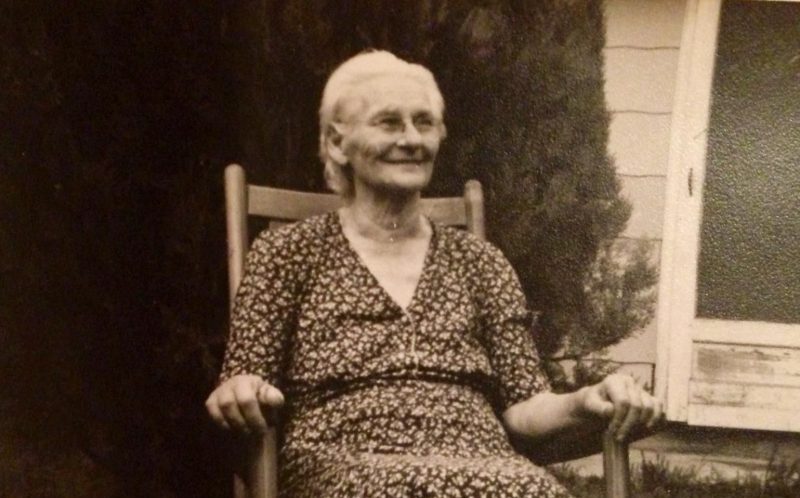I will be 80 years old next year. A younger person might wonder why I am writing an article that has anything to do with parenting, although having raised four sons has certainly taught me a few things.
When I was married shortly after the end of World War II, my husband and I lived on a small farm in Illinois. He had decided to farm after serving in the Navy during that war. I was fortunate that the house on the farm was only 10 years old, so it was completely modernized (in comparison to my aunt’s farm home where I’d spent some time in my childhood years). We lived in a community where most of the farms were property of the U. S. government at the time their owners had emigrated from Scotland. These folks were of my husband’s grandparents’ generation.
I quickly learned that living on a farm was not always easy, although I had been introduced to some of these hardships while my husband and I dated during the five years between high school graduation and our marriage. I remember one time when he came to pick me up to go to a movie, he mentioned that his older sister’s husband had bales of hay on the ground and the impending rainstorm was threatening the chance of keeping that hay dry. So, at my suggestion, he turned the car around, and we drove back to help load all that hay onto wagons. We pulled those wagons into the barn just as the storm broke. The family was really appreciative of everyone’s help that day.
Since the Presbyterian Church was the center of this farming area, our four sons grew up attending Sunday School, singing in the Junior Choir, playing baseball on a 4H team made up of boys who ranged in age from 12 to 20, and learning the satisfaction of going to bed tired at the end of a hard day’s work. All four of my sons started school in an eight-grade school, consisting of approximately 100 students, and my oldest son graduated with a class of 5 (2 girls and 3 boys). The school had a bus which picked them up (sometimes on the highway because the road to our farm was snowbound), and it was packed by the time it reached the school. The driver of that bus was the owner of our local grocery store and, believe me, there were no problems with kids fighting, jumping over seats, or running down the aisles when they heard his booming voice telling them to quiet down. He maintained their attention by being consistent in his expectations; I’m guessing that he may have been a parent himself.
When my oldest son was ready to attend high school (about 10 miles away from our farm), he was picked up on the highway about 7 AM. During the winter months, this meant a good cold walk from our house to the two-lane highway. Since he participated in sports during most of the year, it was necessary for me to pick him after all those football, basketball, or baseball practices.
By that time, since the 120-acre farm we were “renting on halves” from my in-laws didn’t produce enough income to raise four sons, I had gone back to work. This meant that when I left my place of employment, I drove to the farm (about 8 miles from where I worked in an office), prepared and put our evening meal in the oven, and then drove the twenty round-trip miles back to the high school to pick him up after practice.
I remember the first thing he would say when he got into our one and only car (we did have an old pickup truck which my husband used on the farm while I was at work) was “What’s for dinner?” I was only too happy to be able to tell him we had roast beef, fried chicken, baked pork chops, or maybe his favorite, Swiss steak, waiting to be devoured by our family of six. I must emphasize, we never “skimped on groceries” but we saved money in other ways, when necessary.
The boys who were not in high school knew they were expected to help their father with daily chores when they got off the grade school bus in the afternoon. We had a dairy and hog farm and my husband was a good farmer, but out of necessity he also supplemented the family income by selling seed corn in the surrounding counties, as well as hauling lumber or coal for a lumber and grain business, for which his father was the local manager. During the summers, most of the boys were able to earn a little money by helping neighbors with their fieldwork. They learned to drive tractors when they were 13 or 14 years old. When they turned 16, they looked for employment elsewhere, the income from which was saved in a bank for college.
What does this bit of personal history have to do with the subject of parenting? I hope it becomes clear as I describe the pride I feel for my sons who are now productive and responsible adults. Today, all four of our sons are ambitious, financially self-supporting, and very, very honest. They all went on to earn degrees from state colleges. My oldest son went to the University of Illinois and then came to Arizona for his Masters degree and his Ph.D. All my sons achieved their college education with little or no monetary assistance from us, but with school loans from a local bank, every penny of which they paid back on their own.









